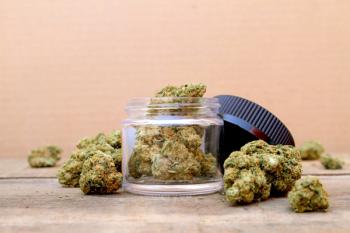
Organic Certification for the Hemp Industry
There have been a few changes when it comes to Organic Certification that you might not know about, so I’ll be dedicating this month’s blog to a certification opportunity for the hemp industry.
As of now, the National Organic Program (NOP) is requiring all companies importing organic products to also have an Organic Certification in order to be able to label these items as organic and sell them in the US. This means that every touch point of foreign organic goods needs to have an Organic Certification. That includes all brokers, distributors, and storage facilities—they need to have an Organic Certification or they will be out of compliance with the NOP and cannot sell their products as organic. So, make sure if you are one of these companies, inside or outside of the industry, you are prepared.
Interest in organic hemp products is steadily rising. Whether it be consumers who prefer to purchase organic products or a wholesale manufacturer looking to source organic ingredients, there’s increasing demand for these products. Achieving organic certification expands your sales market, commands a higher price for your products, instills consumer trust and confidence, increases employee fulfillment, and perhaps most notably, contributes to increasing water quality, conserves energy, promotes ecological balance, and conserves biodiversity. There are many benefits to achieving organic certification, and the process is not as hard as you may think.
Which Agency Oversees the Program?
The National Organic Program (NOP) is a public/private partnership within the US Department of Agriculture’s (USDA) Agriculture Marketing Service (AMS). The NOP develops regulations for organic cultivation, processing, and labeling. The NOP also accredits third-party certifying bodies and state Departments of Agriculture who certify operations to verify compliance with the USDA organic regulations (Title 7 Code of Federal Regulations Part 205 NOP Rule).
Which Cannabis Businesses Can Get Certified?
Currently, the certification is available only to hemp cultivators, processors, and product manufacturers. Because the certification is a federal designation, it is not yet available to the cannabis industry. If you’re a cannabis cultivator in California, however, you’re in luck, as California’s Department of Agriculture has developed their own organic certification program called “Comparable to Organic.” As we wait for federal legalization of cannabis, perhaps more states with follow California’s lead and develop their own organic cannabis certification programs.
What’s the Purpose of Getting an Organic Certification?
Achieving an organic certification means that the operation has undergone a robust third-party audit to verify compliance with the NOP. Being certified as organic ensures the integrity chain of organic products from the farm to the consumer. The certified organic seal is a recognizable symbol of consumer trust and appreciation that the brand cares about the health of both consumers and the environment.
I Use Organic Ingredients in My Products; Can I Say I’m Organic?
No. If your operation is not certified as organic (meaning that you passed the third-party audit), making organic claims on a product’s label or website is federally illegal. Fraudulently representing products as organic may be subject to fines of up to $11,000 for each violation. Without certification, the only place a label could say “organic” is in the ingredient statement (such as “organic full spectrum hemp oil”).
What is the Process to Get Certified?
- Step 1: Implement organic farming or processing practices into your operation by developing SOPs and training staff.
- Step 2: Source certified organic raw materials to produce your products.
- Step 3: Select a USDA-accredited certifying body. Complete and submit the application packet and fees.
- Step 4: The certifying body reviews the application packet and conducts an onsite audit.
- Step 5: The auditor issues a report to the operator that lists nonconformances with the NOP that were observed during the audit, and that were observed during the application review.
- Step 6: The operator applies a corrective action to each nonconformance and submits a written corrective action plan to the certifying body for review.
- Step 7: The certifying body issues the certification.
- Step 8: The certifying body conducts a recertification audit one year out and every year thereafter.
The certification process is straightforward and not overly burdensome. And, if you are currently working towards current Good Manufacturing Practice (cGMP) or good agricultural and collecting practice (GACP) certification, organic certification is an easy one to layer on, as it uses some of the same quality management SOPs. Achieving organic certification is a worthwhile goal that is beneficial to your business, your customers, and to our environment.
About the Author
Kim Stuck is the CEO and founder of Allay Consulting. Direct correspondence to:
Newsletter
Unlock the latest breakthroughs in cannabis science—subscribe now to get expert insights, research, and industry updates delivered to your inbox.




